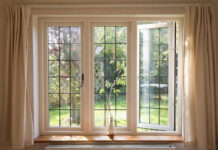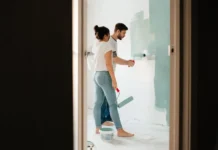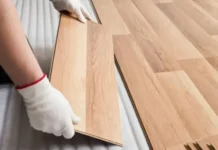Spotting obvious dirty places in the house can be easy, like spilled drinks on your kitchen floor and countertops. However, there are these places that we often overlook, and such places end up being the germiest. These places can affect your family’s health. Cleaning these areas will require more effort to ensure that you get rid of the germs accumulating. Here are five germy places you should probably look into.
1. Dishrag
Your dishcloth is probably the germiest item in your home. Kitchens usually have a lot of traffic, and with the cleaning of dirty dishes, your dishcloth ends up carrying a lot of germs. Most dishcloths are only rinsed after washing the dishes, but you may never remember disinfecting or taking good care of them.
If you want to clean your sponge, you can microwave it for about 2 minutes every day and ensure that you replace it often. According to NSF International, get a new sponge after every two weeks. You should also ensure that it is thoroughly cleaned every day to eliminate the germs that could harm your family. If you also have dishcloths in your kitchen, replace them often and sanitize them regularly. Hang your dishcloths under direct sunlight to kill the germs too.
2. Kitchen Sinks
Kitchen sinks are also among the top areas in your house that may harbor many germs since we keep all our dirty, germy dishes in there along with the germy dish sponge. Organisms such as E. coli and salmonella can be found in the kitchen sink; therefore, you need to ensure that your sink is scrubbed thoroughly after every dishwashing to keep the germs away. As you scrub it, ensure that you disinfect the sides, strainer, and bottom.
3. Cutting Boards
Cutting boards are convenient in the kitchen area as you use them to cut any food when cooking. However, a cutting board can be a hotbed of microorganisms, and it essential to keep it clean at all times. You may wonder which chopping board is better for keeping germs away: plastic, wood, or glass. Glass is the best option as it is safer and easier to clean since it’s not porous.
Repeated slicing can make the chopping board hard to clean through the microscopic groves. If you have a wood chopping board, replace it often because it sucks bacteria inside. Wood also absorbs moisture and is prone to knife scarring. Glass is also a better option, as it does not allow many germs to grow on the surface; therefore, cross-contamination is kept at a minimum. Glass is also easy to clean and disinfect. To clean your plastic chopping board, run it in hot boiling water if you do not have a dishwasher.
4. Toothbrush Holders
You may think that your toilet is the germiest place in your house, but you should not forget that your toothbrush holder can also host many germs. If you place your toothbrush holder near the toilet, it may get particles that get sprayed in the air after flushing.
Toothbrush holders usually contain mold and yeast. To keep the germs away, remove your toothbrush from the toilet and keep it in a dry area where mold can’t grow. Also, sanitize the holder regularly in the dishwasher, sanitize the cycle, and replace your toothbrushes every three months.
5. Pet Feeding Bowls and Toys
Pets also deserve clean food and water bowls. You should wash the bowls daily in your dishwasher or using your hands to keep the bowls clean, rinse them well, and air dry them to prevent the growth of harmful bacteria.
The pet toys host coliform bacteria and, sometimes, yeast and mold. It would help if you cleaned your pet’s toys with hot soapy water once every week and handwash the toys using hot water and disinfectant.
It is nearly impossible to avoid germs, but you can do your best to minimize them by taking the precautions like regularly cleaning the items and paces where germs hide. If in doubt, wash the items or throw them away. You can also sanitize, to be sure. Even when surfaces look clean, they may still have germs you cannot see. It is, therefore, better to keep yourself safe but regular disinfecting of surfaces and items.



































































